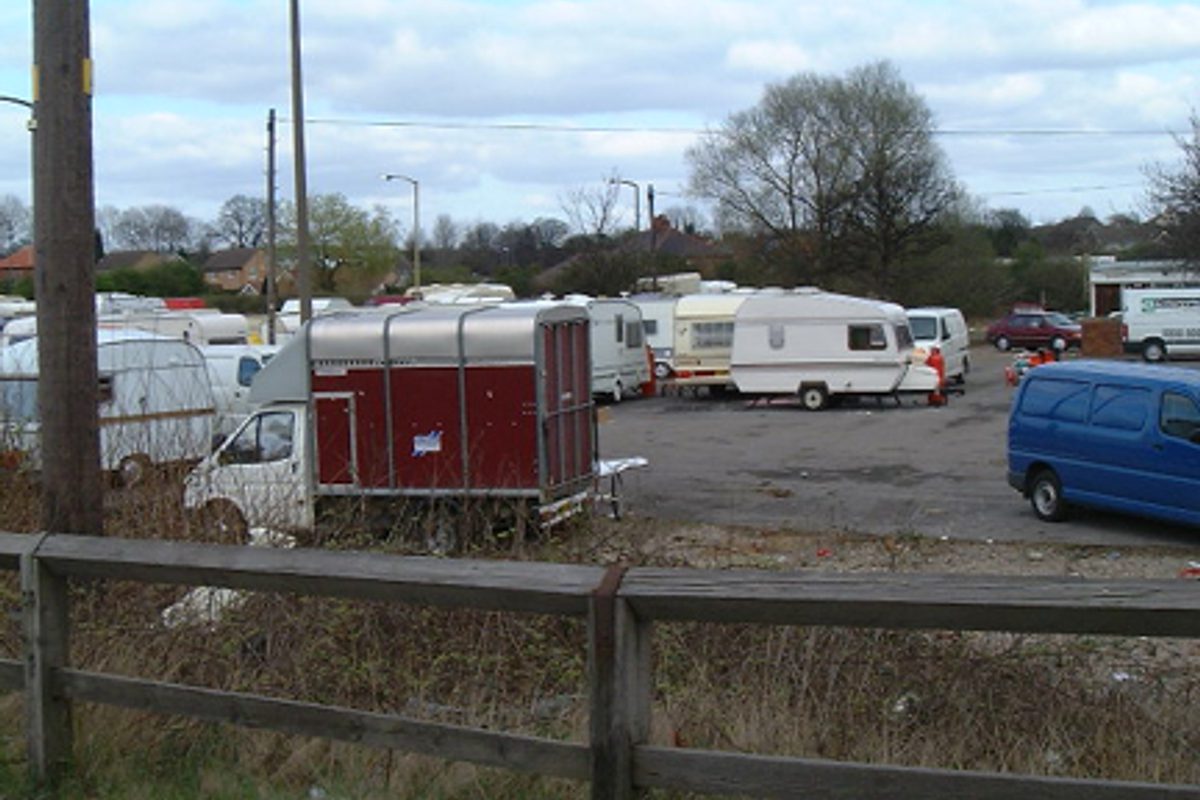Travellers – coming to a car park near you?

With spring now underway, this is the time when the traveller community normally starts moving around the country.
As it has been so wet recently, we are receiving many requests at present to remove travellers from hard-standing sites, particularly large retailers’ car parks and industrial estates.
As the weather improves, we expect the traveller community will also start looking at open land sites.
Prevention where possible
For organisations who are at risk of travellers occupying their land, we would always recommend prevention where possible, by closing off access to the site. For car parks, this might be barriers around the site, such as planting, bollards and fencing, with gate access to the site when the premises are closed.
For open land, such as commons or parks, planting and fencing will help, as will berms (built up banks that prevent vehicle access), with lockage bollards and or gates at a limited number of access points.
In the case of traveller occupation
Should you find travellers on your site, we suggest removing them as quickly as possible to prevent damage to the site and potentially to your reputation and customer experience.
You have three options:
- Call the police
- Remove them under Common Law (Halsbury’s)
- Remove them under a writ of possession
Let’s look at these options in more detail.
Call the police
Under the Police, Crime, Sentencing and Courts (“PCSC”) Act 2022, residing with a vehicle on land without permission became a criminal offence in England and Wales, when the person causes significant damage, disruption or distress.
The offence - which carries a maximum penalty will be three months’ imprisonment or a fine not exceeding level 4 (£2,500) on the standard scale, or both - will be committed if the person fails to leave the land or remove their property without reasonable excuse when asked to do so and they have caused, or are likely to cause, significant damage, disruption, or distress.
The Police also now have power of arrest and power to seize the vehicles.
However, despite the addition of these powers, our clients are finding that in many cases, the Police do not always have the resources available to remove travellers and inform the landowner that they will need to resolve the eviction themselves.
In this case, you need a Plan B. Read on!
Remove travellers under Common Law (Halsbury’s)
Halsbury’s is the most straightforward way to remove trespassers, using Certificated Enforcement Agents.
All you need to do is instruct us and we will attend promptly to serve notice to leave the site on the travellers within a maximum of 24 hours. We have a nationwide team of Certificated Enforcement Agents.
We return the following day and, if they have not moved on, we will remove them with removal vehicles, tow trucks and the Police, if there is a risk of a breach of the peace.
Remove travellers under a writ of possession
If the matter is more complex, you can apply for an order for possession and then a writ of possession to remove the travellers using High Court Enforcement Officers.
In our experience, traveller removal under a writ, tends to be on larger sites, such as the removal of travellers from Dale Farm a number of years ago.
How to find out more and instruct us
To learn more about traveller removal, download our complimentary eBook or give us a ring on 03330 031919.
If you have a case ready to enforce, you can instruct us online.



